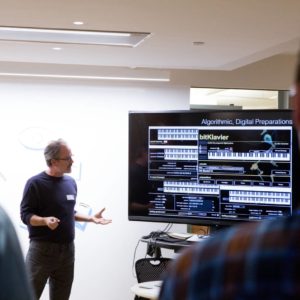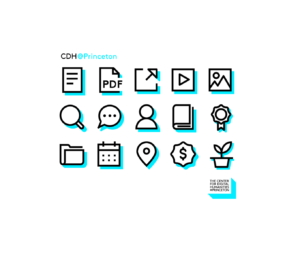
Last spring, my friend, now alum, told me she was going to study Digital Humanities at Stanford in the fall. This was the first time I heard of the field. She had discovered it through the Center for Digital Humanities (CDH) at Princeton, an interdisciplinary research center dedicated to embracing technology as a way to understand the human experience. I spoke with Jean Bauer, Associate Director for CDH at Princeton, to see what this seemingly contradictory field was all about, and how students can engage with it.
Elise Freeman: For people who aren’t familiar with the field, can you give an explanation of what Digital Humanities is?
Jean Bauer: Digital Humanities is an international community of scholars who are interested in one of two things, or both of them. One way to get into Digital Humanities (DH) is to look at the record of the human experience and put that in conversation with digital computational methodologies that are being developed primarily but not exclusively in Computer Science. Think of things like network analysis, geospatial analysis, and data visualization and see what new questions you can ask of those sources and if there are any older questions that you can get a little more purchase on. That’s one kind of DH. The other kind is taking the training that we get as humanities scholars and using it to critique current technology and the ways in which it does or doesn’t account for things like disability, queer identity, race and other factors.
EF: If you’re a humanities scholar without computer science training or a computer science major without any humanities training, how do you get involved within DH?
JB: The best way to do it is for those two people to get together and do a project together, usually with some mentor who’s gone through this before. But the whole thing about DH is that it can really take lots of forms. In DH we have this term Big Tent, which means that I’m not going to tell you that you don’t do digital humanities if you are researching with curiosity, thoughtfulness, and awareness of systems and structures and you know how these different kinds of methodologies can complement each other. What that means is that none of us is an expert at it. It’s really about collaboration.

EF: What would you say is the main goal of CDH and where do you see it fitting in with other fields at Princeton?
JB: Our goal is twofold. First, to be a hub of best practices and expertise in this very fascinating and ever-expanding field, and second to create a campus culture at Princeton such that no undergrad or graduate student can get through their time here without being exposed to the DH way of thinking. DH is not just a set of things you learn but it’s also a mindset. It’s the kind of willingness to try new things as well as trust in the expertise of others to get something done.
None of us is an expert at it. It’s really about collaboration.
EF: How can an undergraduate get involved with DH?
JB: You can contact us and then come in and talk about your interests. We can set up regular consultations if you’re sort of playing around with something and want to develop those ideas. Consultations tend to be an hour a month, which is enough to check in, give you some ideas, and a month later see where you are. Also, depending on your interests, we might put you on one of our project teams. Then you get to work with faculty and graduate students to learn from them about the sort of methodologies that they’re using. The main mode of engagement we have right now are the intro classes to DH, and we’re hoping to expand our class offerings.
—–
As a humanities major with interests in STEM, I am grateful to have learned that CDH at Princeton reveals an interconnectedness between these two seemingly opposing fields. In this way, Digital Humanities speaks to me beyond a personal level and serves as an inspiring model of research. DH centralizes the collaborative element of research, and produces insightful and compelling projects as a result. I hope to see myself and my peers embrace the interdisciplinary in approaching our research, and in doing so, stepping out of our academic comfort zones to have faith in the ideas of others.
— Elise Freeman, Humanities Correspondent

